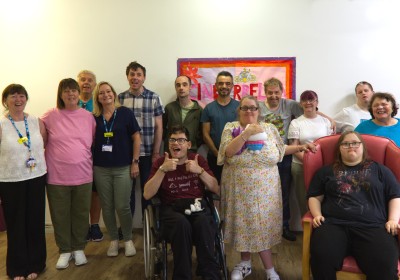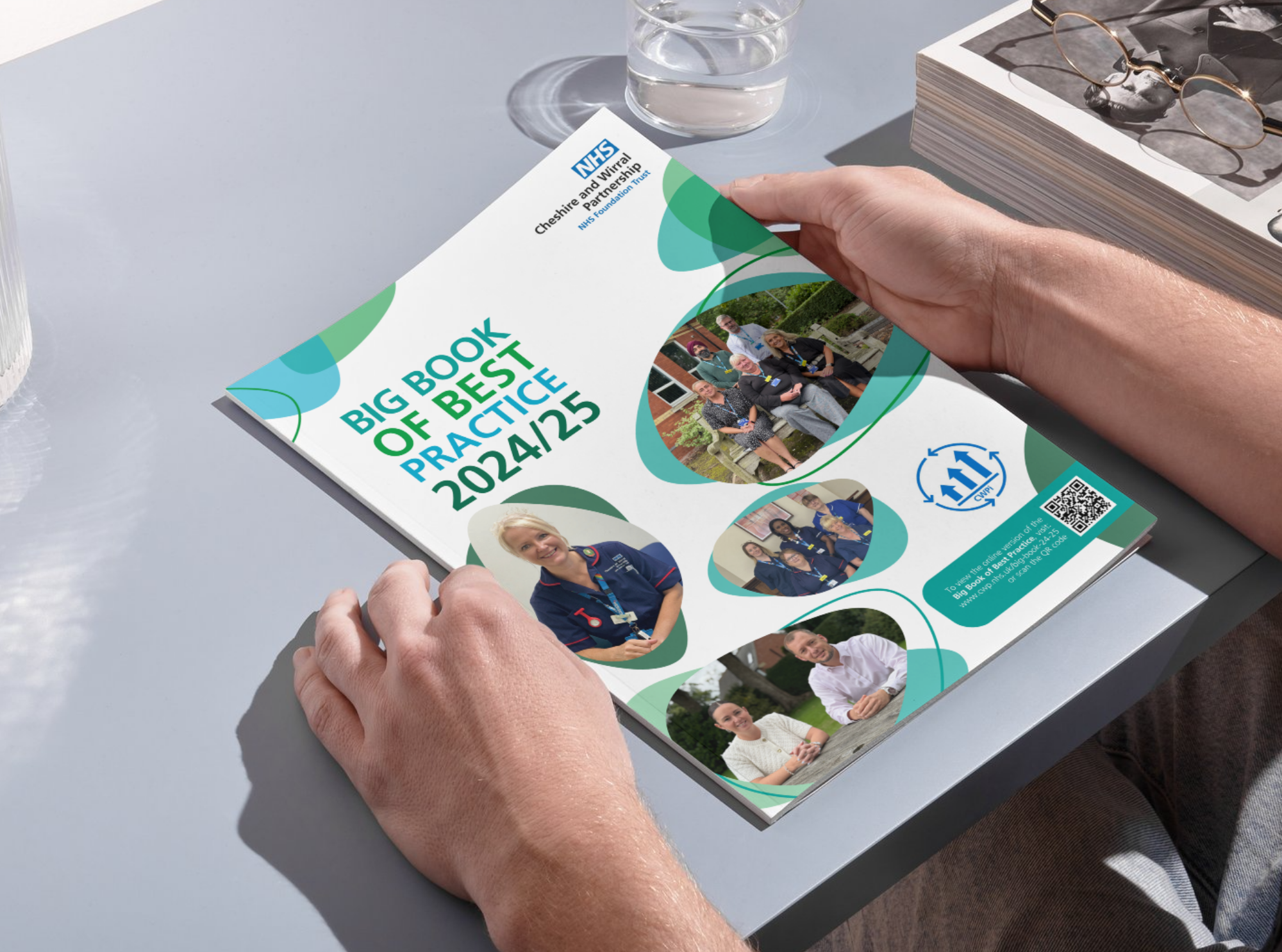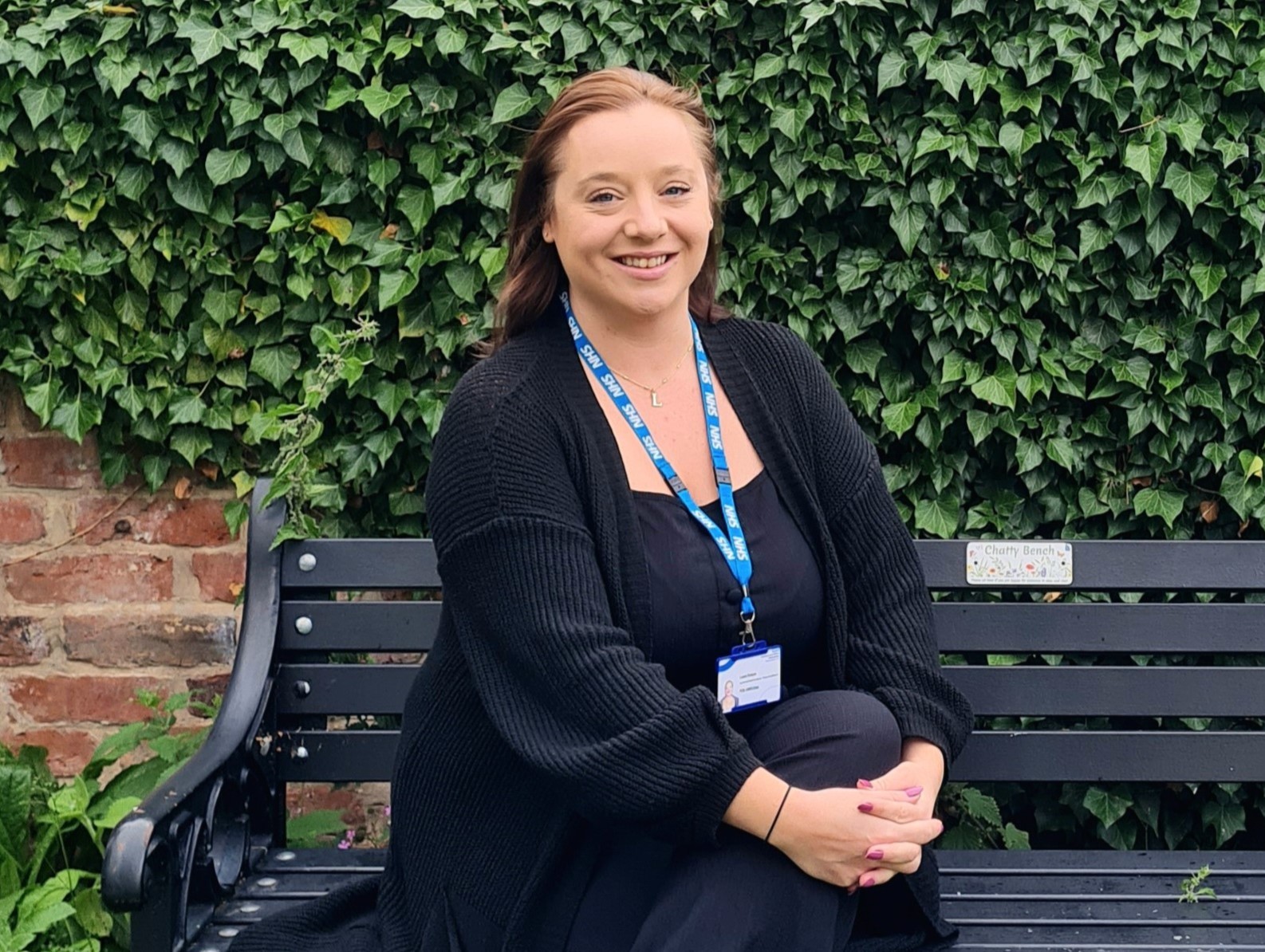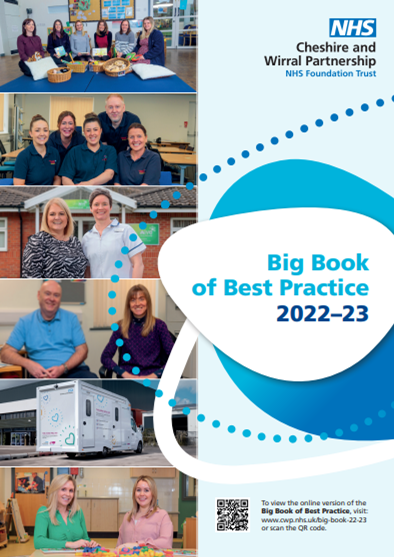Below you can view all the entries that made it into the Big Book of Best Practice 2024-25 from the learning disabilities, neuro-developmental and acquired brain injury care group.
Contact details for each project can be found within the entries below. For more information about the Big Book of Best Practice, email cwp.
Team: Adult Learning Disability Services - Clinical Psychology Team
Contact: jonah.
What did we want to achieve?
Compassion focused therapy (CFT) is an integrative therapeutic model aiming to address high levels of shame and self-criticism (Gilbert 2014). It is recognised that high levels of shame and self-criticism are present in the intellectual disability population (Werner, 2015) and there is an emerging evidence base for the use of CFT with individuals with intellectual disabilities (Goad, 2023).
This project aimed offer adapted compassion focused therapy to service users. Furthermore, shame and self-criticism can be experienced by parents and care staff, which can lead to burnout. Therefore, the Clinical Psychology Team also aimed to offer CFT approaches to carers of individuals using their services.
What we did
Clinical psychology staff within learning disability services had training in CFT and then developed a CFT group for individuals with intellectual disabilities based on Growing Kind Minds (Clapton, 2016). They also developed a compassionate mind training day for family and paid carers.
So far, CFT groups of seven to eight sessions have been provided by the Trafford Community Learning Disability Team (CLDT) and two Cheshire East CLDTs. Three compassionate mind training days have been provided for family carers and paid carers by East CLDT. These interventions were delivered by two to three clinical psychology staff, including qualified, trainees and assistants.
Results
For the CFT groups, improvements were shown on the forms for the self-criticising/attacking and self-reassuring scale, CORE-LD, goals and qualitative feedback.
Examples of feedback included:
- “I have been given the language of feelings and emotions.”
- “It was interesting and nice to know that you (facilitators) can be scared as much as we can.”
- “I became my own best friend.”
- “Being more kind to myself and not hitting, I can think about the compassion picture instead and say ‘it is what it is’.”
For the compassionate mind training day, improvements were shown on the Burden Interview, Fear of Compassion scale, and qualitative feedback.
Next steps
Findings have been disseminated through the Learning Disability Clinical Network Group and presented at the North West Clinical Psychology Learning Disability Special Interest Group.
As other CLDTs increase their clinical psychology staffing, new staff are being trained in CFT, and they plan to run these groups in their services.
The group resources are continually refined based on feedback from the groups and facilitators and based on the specific needs of those attending.

Contact: caron.
What did we want to achieve?
People with learning disabilities are more likely to be at risk of abuse and often dependent on others to identify and report safeguarding concerns. Wirral Community Adult Learning Disability Team (CLDT) identified a lack of appropriate resources to promote awareness for people with learning disabilities, so they wanted to create a resource that would be engaging, easy to retain and memorable for all. The aim was to work collaboratively with day centre attendees to create an inclusive video loosely based on a well-known story and acted by service users, to enable everyone to recognise the signs of abuse and know how to get help.
What we did
The team developed a participation group involving CLDT, day centre attendees and staff, and consulted with social workers to ensure key safeguarding issues were highlighted. The day centre drama lead produced a draft script - ‘Cinderbella: A Safeguarding Story’. This was adapted during regular visits to meet the needs of the actors - incorporating their views and interests, such as preference for pantomime lines.
The team produced an accessible film with subtitles and Makaton. Makaton was signed by a service user, supported by a speech and language therapist. Video was used as the team felt it would be more versatile. The film was showcased to service users, carers and other day centres.
Results
Feedback from service users, carers, managers and social services has included:
- “It really does get the message across.”
- “I haven’t seen anything that impactful for a few years – it’s an outstanding piece of true coproduction work with a powerful message.”
- “The Learning Disability Team was friendly, professional, person-centred and took time to understand and get to know people - enabling and empowering them to speak up for themselves and their peers to produce an impactful video. They have more awareness themselves around safeguarding, neglect and how to keep themselves safe.”
- “Such an innovative way of getting the safeguarding message across.”
Next steps
The video has been shared on public media by the day centre, and Wirral Evolution’s Facebook page, YouTube page and website. It has also been shared with CWP managers and the team is sharing it with Integrated Disability Service colleagues, who can share with other services.
A lot of the feedback suggests it is an innovative way of getting the message across, so the team is planning to use the same method to create more videos and are looking at ideas around health inequalities. They are currently in the process of planning another production with the day centre on mental health awareness.
Honorable mentions
With nearly 100 entries received for the Big Book of Best Practice 2024-25, we have unfortunately been unable to include every entry in the final book. However, many of the projects – despite not being selected for full publication – deserve to be celebrated for the fantastic outcomes achieved.
You can view the honorable mentions for the learning disabilities, neuro-developmental and acquired brain injury care group below:
- Development of a workplan for psychiatry - West Community Learning Disability Team




